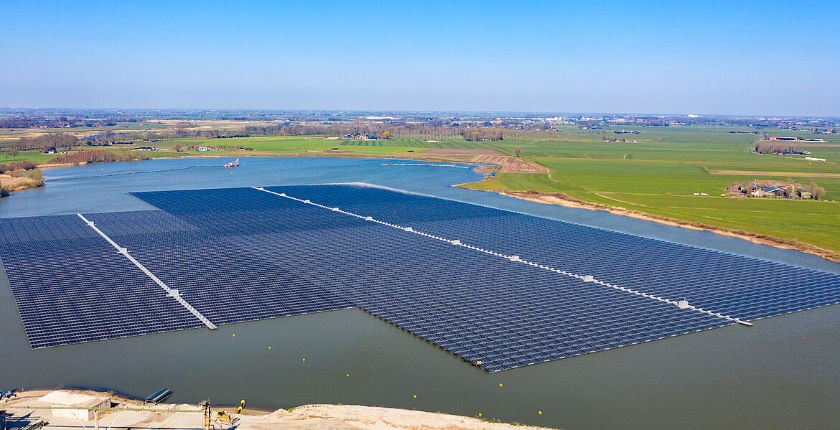Researchers from Cambridge University have developed floating artificial leaves that generate clean fuels from sunlight and water, and are hopeful they could eventually operate on a large scale at sea.
The researchers designed ultra-thin, flexible devices, which take their inspiration from photosynthesis – the process by which plants convert sunlight into food. Since the low-cost, autonomous devices are light enough to float, they could be used to generate a sustainable alternative to petrol without taking up space on land.
Outdoor tests of the lightweight leaves on the River Cam showed that they can convert sunlight into fuels as efficiently as plant leaves.
The team used thin-film metal oxides and materials known as perovskites, which can be coated onto flexible plastic and metal foils. The devices were covered with micrometre thin, water-repellent carbon-based layers that prevented moisture degradation. They ended up with a device that not only works, but also looks like a real leaf.
Tests of the new artificial leaves showed that they can split water into hydrogen and oxygen, or reduce CO2 to syngas. While additional improvements will need to be made before they are ready for commercial applications, the researchers say this development opens whole new avenues in their work.
Tags: Cambridge University, Clean Fuels, Floating Artificial Leaves, Sunlight

Recent Posts
IHI admits improper alteration of data over 4,000 marine engines
Shipowners welcome 40% production benchmark
MPCC opts for 2 methanol dual-fuel ships
WinGD to debut short-stroke engine design
MarineDOT cuts fuel consumption by 100,000 gallons using ABB technology
CMA CGM invests $214m in shipping decarbonisation
SEB adds shipping to 2030 net zero target
MB Shipbrokers and Azolla create decarbonisation solution